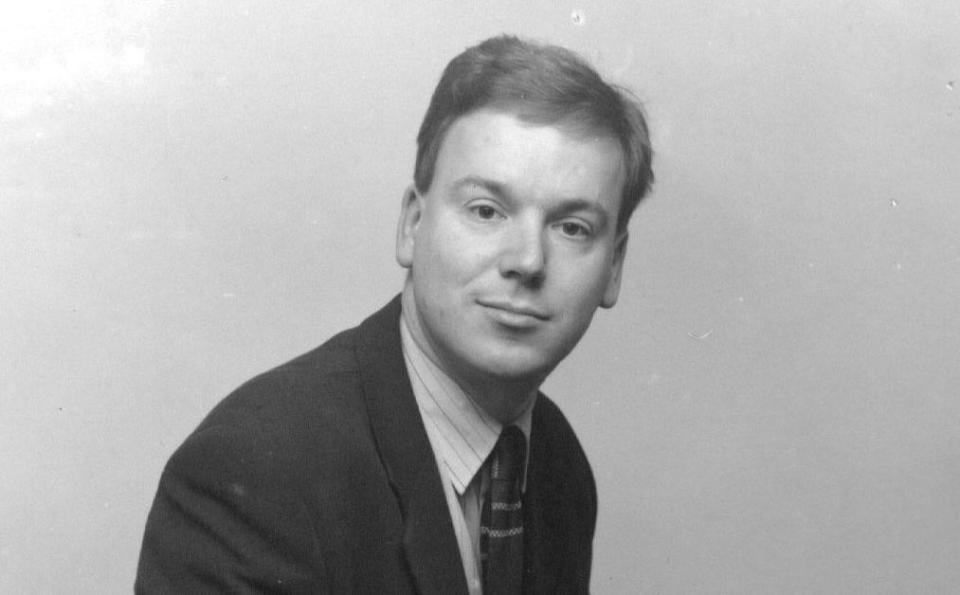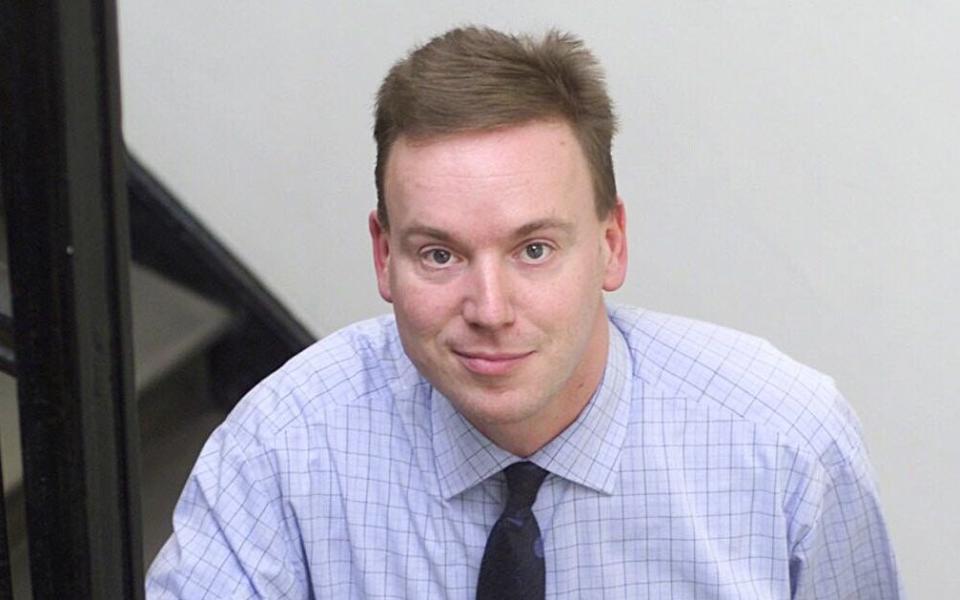‘I told Blair to cancel Horizon in 1998 – even I could see it was likely to go wrong’

- Oops!Something went wrong.Please try again later.
For the hundreds of victims of the Post Office Horizon IT scandal, a recently-unearthed memo from 1998 must be almost too painful to read.
The then Prime Minister, Sir Tony Blair, was warned that Horizon was “flawed” and that an “unsatisfactory” deal with suppliers Fujitsu would leave the government “dependent on a hugely expensive, inflexible, inappropriate and possibly unreliable system”. Fatefully, Blair went ahead with Horizon anyway, and we all know what came next.
The man who wrote that memo, Sir Geoff Mulgan, is now helping Sir Keir Starmer to prepare for government, and the Labour leader would do well to listen to him. Mulgan worries that political leaders still have too little grip on science and technology, and that mistakes like Horizon are still happening around the world.
“I did recommend cancelling it,” he says of Horizon, “and then tried to look at some of the lessons to be learnt – there was a gap in capability in the British Government of people with an understanding of technology.
“The Government’s very strong on finance, especially the Treasury, obviously strong on things like law, but I was often the only person in the room who had any tech background. And I was definitely not a deep expert on Horizon-type projects, but even I could see that it was unreliable, likely to go wrong.
“These were monstrously big projects, which didn’t involve the users at all in the design process. Even the Post Office management didn’t get to see the software. Blair, to his credit, did at least, say ‘surely we need a reassurance that the technology will work’. He was given that reassurance by the then Department of Trade and Industry. So he asked the right question, but didn’t get the right answer from the system.”
Mulgan reacted “with horror” as the Post Office scandal unfolded over the course of 20 years, adding: “I think this is a topic where guilt is very widely shared. Certainly people from all the political parties made wrong decisions at certain points. The Government machine should also be held to account. The Civil Service got this wrong.
“For me, the crucial thing is not just that justice has to be done, but the right lessons are learnt. And I’m still not quite sure that process is yet happening. Because we will probably be in a blame festival rather than lesson learning. The same applies to the Covid Inquiry.”
Mulgan, 62, is the sort of person who seems to have lived a dozen lives in the time it has taken the rest of us to live one. In his various incarnations, he has been a trainee Buddhist monk, a roadie, an encyclopaedia salesman, a BBC reporter, a local government official, an author, a PhD student, a lecturer, a think-tank director, a Downing Street adviser and more.
He is currently a professor of collective intelligence, public policy and social innovation at University College London, and he advises governments all over the world as a sort of freelance problem solver. After he founded the cross-party think-tank Demos in 1993, his counsel was sought by Blair, Sir John Major, Gordon Brown, David Cameron and Boris Johnson.

In his latest book, When Science Meets Power, Mulgan argues that few political decisions are taken without input from science or technology (think Covid, Horizon, net zero, clean air) and that few major science projects exist in isolation from politics, hence there is a need for each discipline to become more engaged with the other. The alternative, he argues, is that science becomes “a de facto sovereignty of its own”, ungoverned by politicians who don’t understand it. Scientists, of course, are not infallible, and Mulgan worries about the estimated 69 laboratories in the world that handle potentially lethal viruses and other organisms (one of them is in Wuhan) without any global agreements on what they are allowed to do or even a registry of where they are.
He cites it as an example of where science can be “opaque and secretive”, operating in silos that can skew the political decision-making process. It happened during Covid, he says, when lockdowns were driven by the opinions of experts in viruses and physical health with little or no input from experts on the indirect effects of removing liberties.
“The whole system of advice and decision making was unbalanced,” he says. “There was almost no voice for taking account of mental health. There was almost no account taken of the care system which has much less voice and status in Whitehall than the hospitals. And there was a kind of assumption that the people at the top of the Government could weigh up all these difficult things.
“But as the Covid Inquiry has shown, there just wasn’t that capacity at all. It’s one of the things where I think there’s been a decline in Britain, of basically the competence of the centre of Government.”
That competence will be increasingly tested in years to come as the economy is transformed by the unstoppable growth of artificial intelligence, and several countries have asked Mulgan what to do about it.
“We may well see some dramatic effects on jobs from AI,” he says. “Probably most jobs will be affected fairly fundamentally. I worry about people being buffeted by change and not able to navigate it.”
He is trying to find solutions, and says everyone from a 15-year-old thinking about course choices to a 50-year-old working in a declining industry should have easy access to guidance on which other jobs are likely to grow and which skills they would need.
“Now, we have little bits of that, but nothing remotely systematic. So most people are terrified. I do events in secondary schools on future jobs with kids and they’re not being told at all about the reality of their choices for their lives.
“Governments may need to provide a right to work as well. I think that all sorts of things which are politically unthinkable now may become necessary.” Mulgan insists there is “not a lot I can say” about his current work with Labour, but does offer up the fact that: “The Labour Party is struggling with imagination, a 10, 20-year vision. That’s partly I think, because of a sense that what the public wants is slightly boring, quiet competence at the moment.”

He worries that the political class has turned away from longer range strategy in the last decade or so and hopes that if Starmer – or Rishi Sunak for that matter – wins the election he will “do a reset” and tell the public there are a series of 20 to 30 year tasks, such as fixing social care: “Which have to be done, which will all be difficult, but they’re not impossible. And at the end of it, you know, we may have a significantly better country. But I think he’s obviously nervous about talking in those terms…worried that doing too much planning for Government might jinx their chances and it’s tempting fate.”
A native of London, Mulgan divides his time between the capital, where he lives in a two-storey flat with his second wife, and Luton, where his children from his first marriage live.
“I find it very useful to give me a different perspective from the metropolitan elite,” he says.
In the mid-1980s he got another useful insight into the disconnect between Westminster and the rest of the country as a director of Red Wedge, the left-wing collective of musicians and comedians that toured the country banging the drum for Labour. He also drove their tour bus, where he got to know the likes of Billy Bragg, Paul Weller and Jimmy Somerville.
“We performed to these huge enthusiastic audiences all over the country, thinking it was all going wonderfully,” he says. “And of course, it had no effect at all on the outcome of the 1987 election. So that was quite a useful political education.
“They would do events in each city, usually with local Labour MPs. And the MPs would all be basically men in their 50s and 60s, in suits. And they were completely incapable of relating to these young people who’d come along to see Billy Bragg. I don’t think it would be that different today.”

He would like to see Parliament modernised – a job for Starmer, maybe, if he gets into power. “Our main forms of democracy are essentially 19th or even 18th century,” he says. “Elections every few years send a bunch of people to a building in the capital where they pass laws.
“Even though every other field of life from shopping to relationships to travel has been revolutionised by technology, it’s hardly touched democracy at all. That is leading to a declining trust in democracy and that’s something where we probably do need a crisis to change things.”
He cites Taiwan and Estonia, where the public can take part in the framing of policies by making proposals and offering their expertise in a transparent way, as examples of doing things differently.
One of the reasons politicians seek his advice is surely because Mulgan has so much more life experience than them. Before he took a PPE degree at Balliol College, Oxford (where he was followed a few years later by Johnson) he spent several months living in a Buddhist monastery in Sri Lanka following a chance meeting with Nyanaponika Thera, “one of the great thinkers of modern Buddhism”, according to Mulgan.
After university he worked for the Ken Livingstone-era Greater London Council, which he describes as “strange and chaotic and fascinating” until it was abolished by Margaret Thatcher.
“It was probably quite lucky for me that it was abolished,” he admits, “because then I went to MIT [Massachusetts Institute of Technology] where lots of people were essentially inventing the internet at that time.” He studied technology and “became quite convinced the world was going to be changed by digital technology”.
He got a job as a BBC radio and television reporter, worked as an adviser for Brown and then entered Number 10 as Blair’s director of policy, with an awful lot of diversions along the way.
In contrast to his bewilderingly circuitous route to the present, “our politicians tend to go straight into Westminster”, he complains, “and that means in all the parties people are not very well prepared for the realities of power.
“One of our systemic weaknesses is – unlike other countries – far too few of our politicians learn by being mayors or running a state. We don’t have proper training for politicians. It is the only serious role which gets essentially no training. China does this – ministers and governors do two weeks residential a year, ours do nothing. And you see them floundering all the time. I would love to see a much more systematic preparation for opposition but that’s not a British tradition.”
With Starmer on a seemingly unstoppable path to power, he may need all the help Mulgan can give him.

